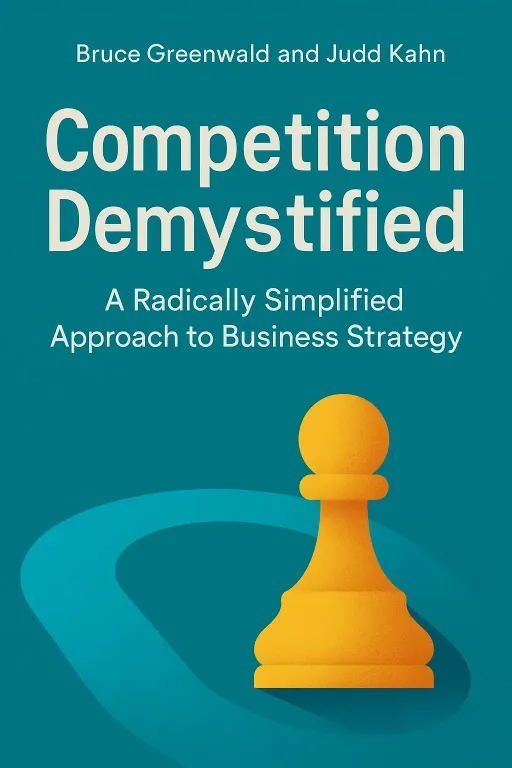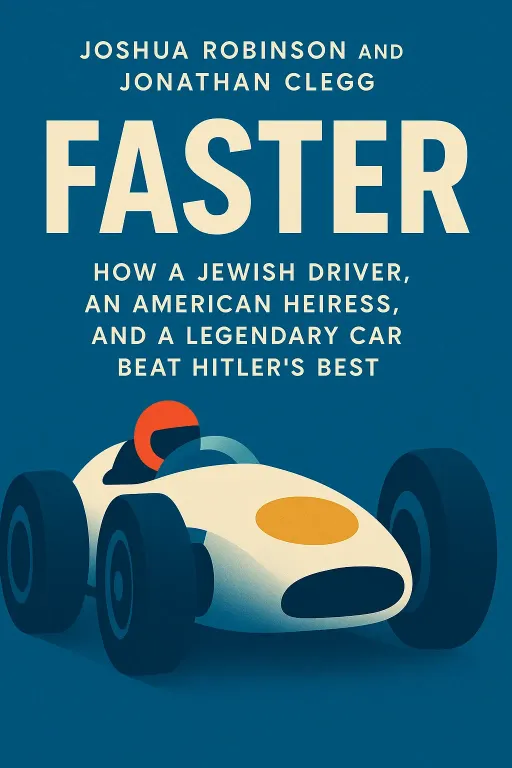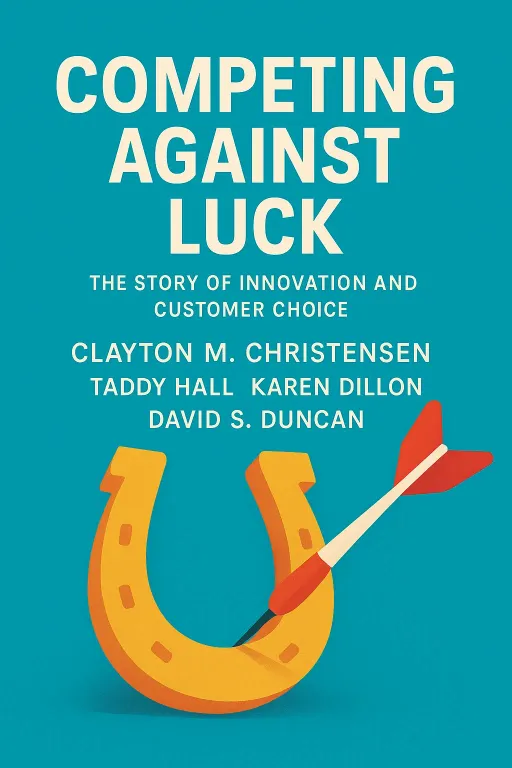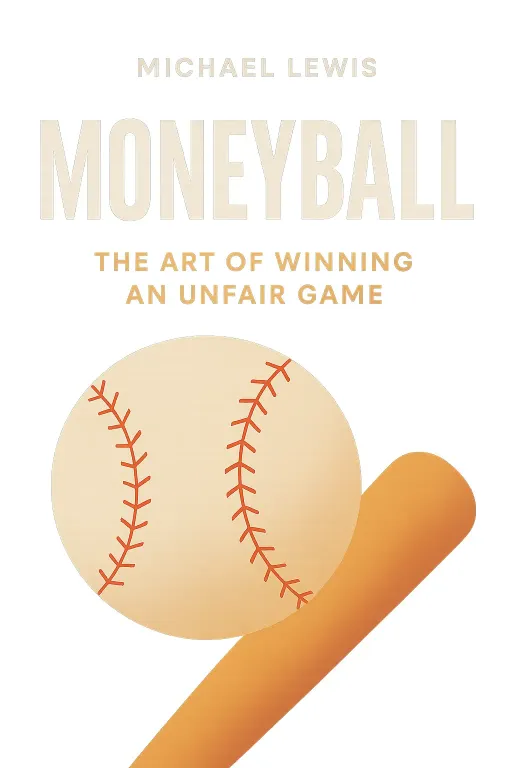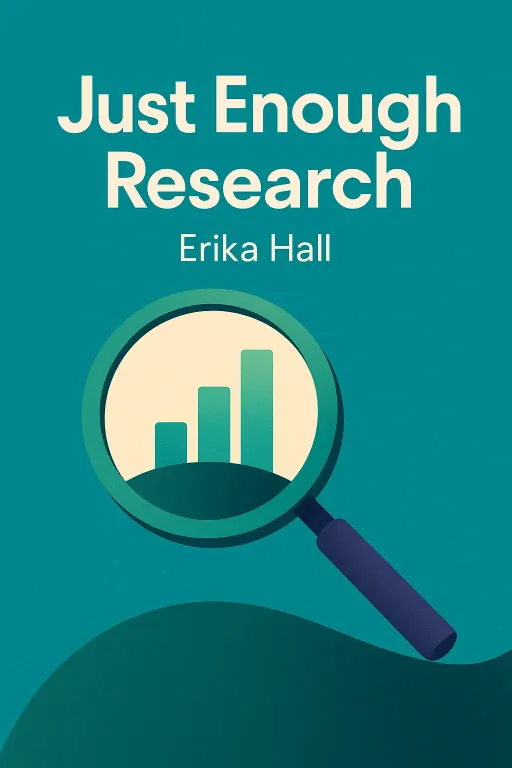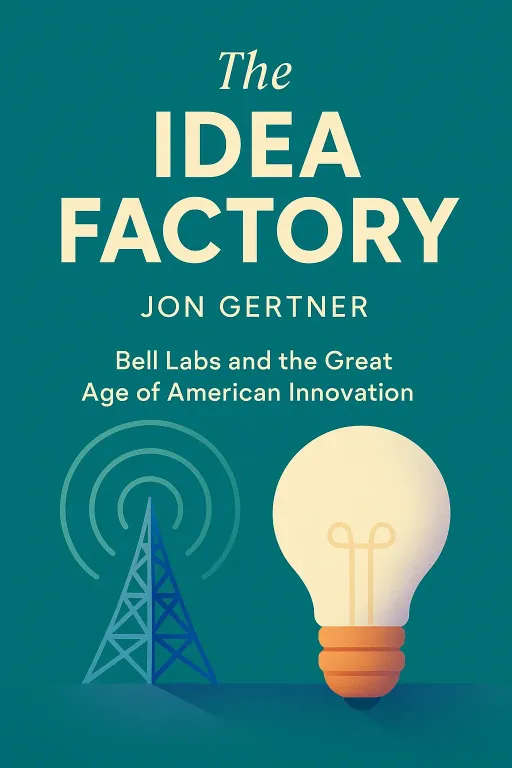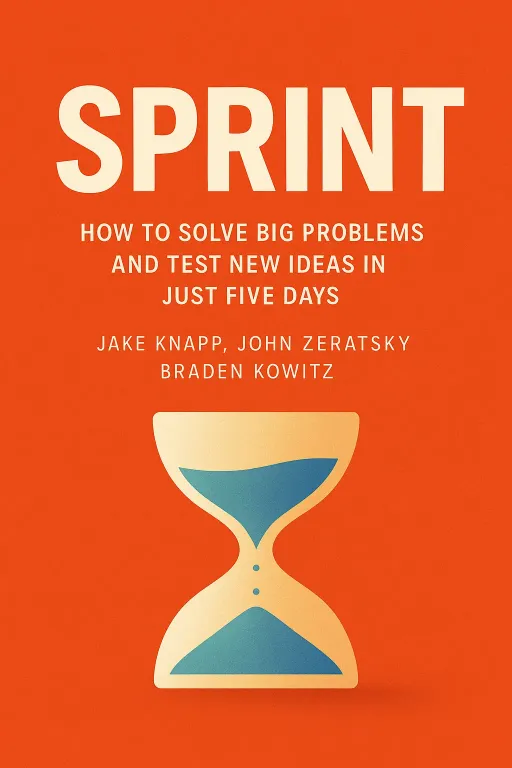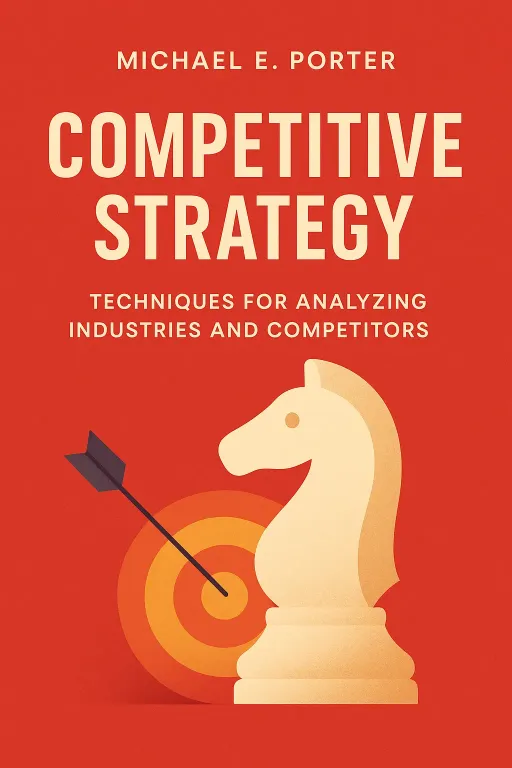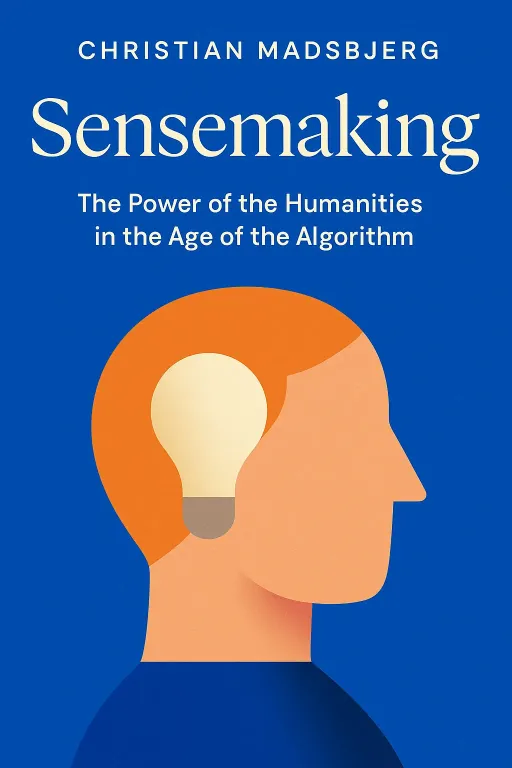
The Data Delusion
12 minThe Power of the Humanities in the Age of the Algorithm
Golden Hook & Introduction
SECTION
Joe: The world tells you that data is the new oil, the key to everything. But what if the biggest, most expensive business failures of the last decade weren't caused by a lack of data, but by having too much of the wrong kind? Lewis: That’s a bold claim. We're all taught to be data-driven. Every meeting starts with "What do the numbers say?" You're telling me that could be the very thing sinking the ship? Joe: That's the explosive idea at the heart of Sensemaking: The Power of the Humanities in the Age of the Algorithm by Christian Madsbjerg. Lewis: Madsbjerg is an interesting guy to be making this argument, right? He's not some academic in an ivory tower. He's a philosopher and anthropologist who co-founded a global consulting firm, ReD Associates, that advises top companies like Ford and Adidas. Joe: Exactly. He's in the trenches, applying these 'soft' humanities skills to solve billion-dollar business problems. The book is his manifesto against the blind worship of data, and it's become a bestseller in places like Japan, which is fascinating. He argues that our obsession with numbers is making us blind to what truly matters: the messy, complex, and deeply human world. Lewis: Okay, I'm intrigued. A philosopher telling CEOs they're looking at the wrong spreadsheets. Where do we even start? Joe: We start where Madsbjerg does: with failure. He kicks things off with these incredible stories of companies and people who did everything the data-driven playbook told them to do, and still failed spectacularly. Picture a conference room in a massive healthcare tech company...
The Tyranny of 'Thin Data': Why Our Obsession with Numbers is Making Us Blind
SECTION
Joe: This company is a leader in diabetes care products. For nearly a decade, they've had double-digit growth. But now, they've missed their sales targets for the third time this year. The board is breathing down the neck of a senior executive, an EVP. So, they do what any good company would do: they commission a massive market research study. Lewis: Let me guess: surveys, focus groups, data crunching. The works. Joe: The works. They spend millions. They survey thousands of diabetes patients across the US and Europe, measuring hundreds of different factors. They build complex models. And after all that, they come back with a key finding. The EVP is on the edge of his seat. The big reveal is... Lewis: What? Joe: Forty-three percent of Type 2 diabetes patients are noncompliant with their medication. And of those, eighty-four percent say the main reason is... they forget. Lewis: Hold on. They spent millions of dollars to find out that sick people sometimes forget to take their medicine? That feels... underwhelming. Joe: Underwhelming is the word. The EVP is furious. He already knew patients were noncompliant. The data confirmed what he knew, but it gave him absolutely zero insight into how to change the behavior. The company is left with a pile of numbers and no solution. Lewis: So that's what Madsbjerg means by 'thin data,' right? It’s just the numbers, the 'what,' without any of the 'why'? Joe: Precisely. Thin data is information stripped of all context. It's the raw output of an algorithm or a survey. It can tell you that something is happening, but it can't tell you why it's meaningful. The company knows 84% of people "forget," but they don't know what "forgetting" really means in the context of a person's life. Is it because they're in denial about their illness? Is it because the medication routine feels like a constant, depressing reminder of their condition? Is it because their life is so chaotic that it just falls through the cracks? Lewis: But come on, Joe. Forgetfulness seems like a pretty clear reason. Why couldn't they just build a reminder app or something? That seems like a logical, data-driven solution. Joe: And that's the trap of thin data! An app might solve a logistical problem, but it doesn't solve a human one. Madsbjerg argues that 'forgetfulness' is a superficial answer. The real question, the one that leads to innovation, is why they forget. That's a cultural, social, and emotional question that a survey can't answer. He quotes the physicist Neil deGrasse Tyson, who said, "In science, when human behavior enters the equation, things go nonlinear. That’s why physics is easy and sociology is hard." Lewis: I love that. It’s easy to calculate gravity, but it’s hard to calculate grief or denial or hope. Joe: Exactly. And this isn't just in business. Madsbjerg tells another story about a Senate candidate in a battleground state. She's the frontrunner, all the polls say she's going to win. Her consultants have sliced and diced the electorate into a hundred different segments. They've crafted the perfect talking points for each group. She's doing everything 'right' according to the data. Lewis: And let me guess, she loses. Joe: She gets crushed. A new candidate enters the race, someone who doesn't fit the models. He's a powerful orator, he connects with voters on an emotional level using metaphors and stories. The frontrunner sees videos of his rallies and gets this deep sense of foreboding, even while her consultants are showing her charts that prove she's ahead. She can feel the energy shifting, but the data can't see it. Lewis: The polls couldn't measure the feeling in the room. They couldn't measure charisma or a sense of connection. That’s another perfect example of thin data. Joe: It's the ultimate thin data. Polling averages are just a shadow of reality. The candidate was so focused on the GPS of her polling data that she didn't realize she was driving straight off a cliff. She was managing a spreadsheet, not leading a movement. Lewis: Okay, so if 'thin data' leads to these dead ends, these spectacular failures, what's the alternative? How do you get to the real 'why'? How do you avoid driving off that cliff?
Sensemaking as the Antidote: Reclaiming Human Wisdom with 'Thick Data'
SECTION
Joe: This is where Madsbjerg introduces his core idea: Sensemaking. It's the art of understanding the world not through abstract numbers, but through deep cultural inquiry. And he illustrates it perfectly with the story of the legendary investor George Soros and his famous bet against the British pound. Lewis: Ah, the man who broke the Bank of England. I've always heard this story told in terms of complex financial models and economic theory. Joe: And that's the common misconception. Madsbjerg reveals that the real story is much more human. In 1992, Soros and his team were trying to figure out what would happen with European currencies. Instead of just building quantitative models, they focused on the human drama. The key players were the head of the German central bank, Helmut Schlesinger, and the British finance minister, Norman Lamont. Lewis: So they were analyzing the people, not just the economies. Joe: They were analyzing the culture. They knew the German Bundesbank was culturally obsessed with fighting inflation. It was in their DNA after the hyperinflation of the 1920s. They also knew Norman Lamont was a proud, somewhat aggressive politician who was publicly pressuring the Germans. Soros's team read newspaper articles, they analyzed the language, they pieced together the story of the relationship between these two powerful men. They were gathering what Madsbjerg calls 'thick data.' Lewis: So thick data is the context? The stories, the emotions, the cultural baggage? Joe: Exactly. It's the narrative. It's understanding the egos and the political pressures. Soros's team concluded that the proud Germans would never bow to public pressure from the British. They would prioritize their own domestic stability over propping up the British pound. Based on that human, cultural insight, they made a massive bet against the pound. Lewis: And the rest is history. They made over a billion dollars. It's like office politics, but for global economies. They weren't just looking at spreadsheets; they were reading the room, even from thousands of miles away. Joe: That's the perfect analogy. And this leads directly to the core principles of sensemaking. The first and most important is: Culture, not individuals. Soros wasn't just analyzing one person; he was analyzing the culture of the German Bundesbank versus the culture of the British government. He understood that our actions are shaped by the social worlds we inhabit. Lewis: That makes so much sense. It’s like trying to understand why someone loves a certain kind of music. You can't just analyze their brain chemistry. You have to understand the culture they grew up in, the friends they had, the historical moment. Joe: Precisely. The second principle is Thick Data, not just thin data, which we've talked about. The third is The Savannah, not the zoo. This means you have to study people in their natural, complex environments, not in the artificial setting of a focus group or a lab. Madsbjerg tells a great story about one of Soros's partners, Robert Johnson, who was worried about an investment in the Finnish currency. Lewis: What did he do, run a new model? Joe: No, he moved to a hotel in Helsinki for the winter. He just hung out in cafés, listening to conversations. He talked to business people, union negotiators, regular citizens. And he heard in their conversations, in their tone, that they were all preparing for a devaluation. He felt the mood on the street. He got out of his position, and days later, the currency collapsed. He observed the animals on the savannah, not in the zoo. Lewis: Wow. That takes a level of commitment—and a type of intelligence—that is completely different from what we normally think of as "business intelligence." Joe: It's a different muscle entirely. And that's Madsbjerg's whole point. We've let that muscle atrophy because we've become so mesmerized by the false precision of numbers. He argues that the most powerful leaders and innovators are the ones who have cultivated this ability to make sense of the world through a human lens.
Synthesis & Takeaways
SECTION
Lewis: So when you boil it all down, this isn't really an anti-technology or anti-data book, is it? It feels more like a plea to not let our tools make us stupid. Joe: That's the perfect way to put it. It's not about choosing one over the other; it's about synthesis. It's about recognizing that thin data is a useful tool, but it's a terrible master. And Madsbjerg's final point is the most profound. He uses the world of long-term care to make his case. Lewis: That seems like a big jump from hedge funds to elder care. Joe: But it's where the argument lands with the most emotional force. He tells the story of Randall, an 87-year-old man with dementia in a care facility. Every day at 3 PM, during the shift change, Randall would get extremely agitated. The facility's approach was efficiency-driven, focused on metrics—thin data. They tried standardized protocols, but nothing worked. Lewis: Because the protocols didn't understand Randall the person. Joe: Exactly. But then one caregiver, Barbara, started practicing sensemaking. She got curious. She learned about Randall's life. It turned out he had been a schoolteacher for 40 years. The 3 PM commotion of the shift change was triggering a deep-seated memory of the 3 PM bell, when hundreds of students would pour out into the hallways. It was chaos for him. Lewis: Oh, wow. That's heartbreaking. And it's an insight you could never, ever get from a data set. Joe: Never. And once they understood that, they could develop 'artful hacks.' When Randall got agitated, a caregiver would gently touch his arm and say, "That noise must be the sound of your students in the hallway, Mr. Johnson." And this simple, human phrase, grounded in an understanding of his world, would calm him down. It was a personalized, contextual solution. Lewis: That's the ultimate 'thick data.' It's one person's entire life story, condensed into a single, effective sentence. You can't measure it, but it changes everything. Joe: It changes everything. And this is where Madsbjerg ends with this powerful, lingering question. In a world where technology and algorithms are taking over so many tasks, he asks, "What are people for?" Lewis: That’s a heavy question. What’s his answer? Joe: His answer is simple and beautiful. People are for making and interpreting meaning. And people are for caring. He says, "Algorithms can do many things, but they will never actually give a damn." Lewis: That really sticks with you. It makes you wonder, in our own jobs and lives, where are we relying on 'thin data' when we should be looking for the human story? Where are we optimizing a process when we should be understanding a person? Joe: A great question for all of us to think about. We'd love to hear your thoughts. What's an example from your life where a human insight beat a data-driven assumption? Find us on our social channels and let us know. Joe: This is Aibrary, signing off.
